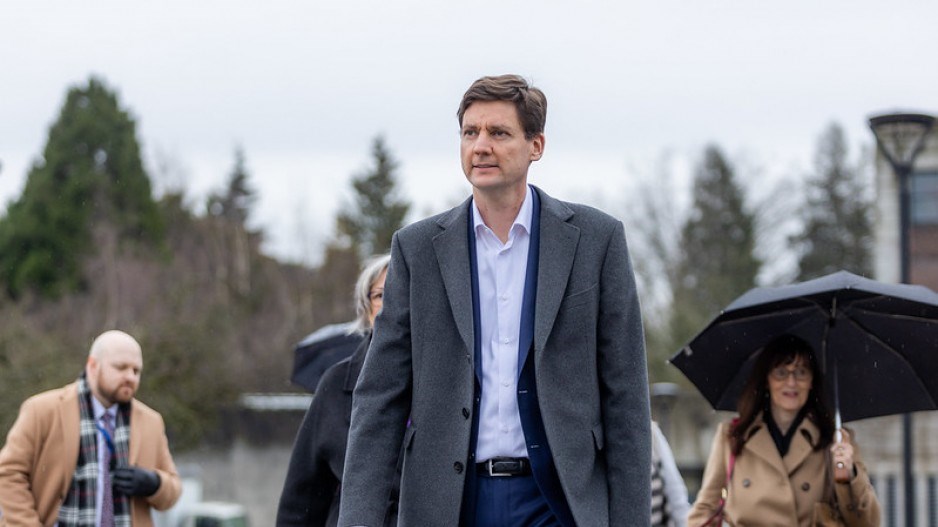There is only one date that matters in B.C. politics in 2024: Oct 19. The provincial election. The day B.C.’s political landscape changes, again.
Every party is working towards that moment: BC United by boosting recognition of its new name, BC Conservatives by converting hopeful polling numbers into real voters, BC Greens by targeting key ridings and the BC NDP by holding steady on what could be the path to an even larger majority government.
Ten months: Both a lifetime, and a blink, in politics.
“All my experiences in the public and private sector have driven me towards this moment,” said BC United Leader Kevin Falcon, a former BC Liberal finance minister who retired in 2012 but returned to rebrand the party as BC United in 2022.
“I’m totally at peace for myself. I’m doing this for the right reasons, my kids' generation. We have got many, many problems and we have people with confidence to fix them.”
Falcon said BC United will unveil more policy planks in 2024, including a housing plan, in a bid to educate voters about the party name change and show an “optimistic message” that “I do think we can solve these problems, we just have to get the right people with the right experience.”
The opposition parties, however, are up against an BC NDP juggernaut that shows no signs of slowing after seven years in power.
Premier David Eby has held the popularity of his predecessor, John Horgan, while unveiling a blitz of new laws on housing. The party dominates on fundraising and is headed into the election with a war chest full of cash.
“Affordability, health care, housing, those are things that we've been focusing on for a long time,” said Housing Minister Ravi Kahlon. “I think we're in a good place.”
The wildcard in the election year is the BC Conservatives, who in 2022 surged to high levels of popularity, but who’ve failed to actually win a seat in an election since 1978.
“We think that standing up for the average everyday person, being straight up, avoiding the spin that goes on and politics and seeing those sorts of changes is what we think British Columbians want and that's what we intend to be running on across the province,” said leader John Rustad.
Critics say the BC Conservatives are benefiting from voter confusion with the unaffiliated federal party, and run the risk of splitting the centre-right vote, giving the NDP a path to a super-majority. That has fuelled speculation about a merger with BC United. Both leaders say they are open to the idea, but so far no formal talks have been held.
The BC Greens goal is to double or triple its current two seats, said leader Sonia Furstenau. The party intends to run a near-full slate of candidates, but in reality is targeting a handful of key ridings where it showed strength in previous elections.
“I think four to six seats would strengthen the voice that we have,” said Furstenau.
“Even with two of us we’ve really demonstrated how strong that voice can be and how important it is. But importantly I want to continue to build a party that is really focused on being rooted on evidence-based solutions and community.”
All parties are heading into the 10-month election race facing concurrent crises in the healthcare system, affordability, toxic drug deaths, public safety and climate change. Their solutions vary, and in some cases have yet to even be articulated publicly.
Repeated public opinion polls have suggested voters are unhappy with the NDP government’s handling of all those issues, yet still inclined to vote for the party for a third term in power. Whether that’s due to Eby’s leadership, the positions of the other parties, or general apathy almost a year before a general election is unclear.
The potential is there for a major reshaping of B.C.’s political landscape. Hang on for the ride — it will be a fascinating 2024.
Rob Shaw has spent more than 15 years covering B.C. politics, now reporting for CHEK ߣ������ and writing for Glacier Media. He is the co-author of the national bestselling book A Matter of Confidence, host of the weekly podcast Political Capital, and a regular guest on CBC Radio. [email protected]







